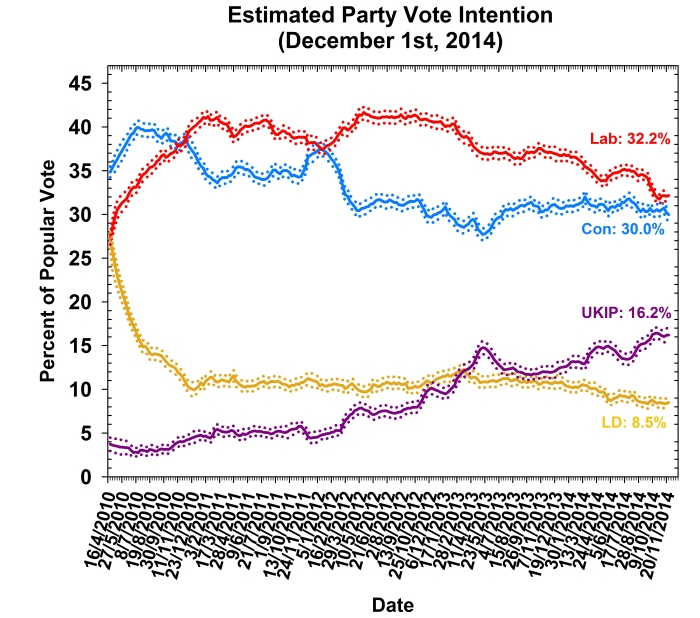By Meg Sherman, a student of Modern History and Politics at University of Southampton. Meg also has a personal blog.
(Cross-posted from http://ms3g11.tumblr.com/)
Revolution, Russell Brand’s new book, is devoted to asking how we build an egalitarian society and awaken our higher skills, a trunk full of hot thoughts about spirituality, spectacle and cultural politics in late capitalist modernity – the age of made-up FTSE symbols as he inimitably puts it. Traversing an ocean of anecdotal evidence spanning the democratic proto-panacea of Occupy to the kangaroo court of Newsnight, the clown-cum-inquisitor gives short shrift to dominant political orthodoxies. It’s not a typical manifesto, although, like in Marx, the cadences matter. Revolution sings to our minds, Brand playing on his lexical flute and telling a true story of how human lives were entombed in bad rule and a deadly consumer culture sacralising destruction. It is the ultimate fantasy of mindlessness. All in all he gives us a bright light for seeing with in gloomy times.
There’s the urge to spring to attack like Murdoch’s rotweiler and do a hatchet job. Of late, the self-styled comic philanderer has turned heads trying to carve out a new reputation for seriousness, undercutting old privilege networks in his spare time with eloquent whimsy and panache, all stylish and rumbustious in conch calls for change in The Trews. It’s precisely because he’s been accused of being a demagogue that his ideas ought to be contested, but a tranche of abusive rebuttals seem only to reiterate an astute claim made throughout his prose and performance comedy: modern media ceremonies of iconoclasm are hurtful, a fruitless spectacle distracting us from collective issues the whole Earth faces as industrial civilization surges humanity to a doom-laden precipice. Is now time to expend energy on hatred? Only if you’ve lost course. It’s time to attain understanding, quickly.
It should seem conspicuous how by focusing attention negatively on a singular comic persona, press machinery conveniently relieves itself of acknowledging or meaningfully contemplating the many and varied ideas on politics and IR, self and the world, derived from solid research and joyfully drenched in iridescent prose in the wave-making books and videos. Their value is the range of their sympathy; forget celebrity.
Hardly anyone in the reviews is calling Revolution’s argument profound, despite the fact the main argument spiralling through the text, although not all Brand’s own, is genius still: if we began thinking and living as communities in harmony with one another’s fundamental needs, the amount of energy necessary to transform the governance of our society would be of an order of magnitude smaller than that which we put in to keeping up a rotten orthodoxy, predicated on corporate power, materialism and possessive individualism, which makes more people dead and depressed quicker, meanwhile emancipating corporations and the exponentially rich from social obligation, and – the apocalyptic icing on the anthropogenic cake – senselessly accelerates ecocide.
On Earth the collective daily lot is human and ecological disaster fixed by an elaborate system of hoarded wealth and power, as concurrently people born in to low-paid lives, ever more restricted by government policy, are in want of facilities to feed, house and take care of themselves. Cruel world that Brand accuses “the bejewelled fun-bus”, the 85 people who have as much wealth as half the world of wanting the ogre system in the heart of the gumdrop gingerbread village to stay cosy, to stop us from realizing our common cosmic plight.
We know liberal democratic governments are plutocracies and that candidacies tend to be sponsored by financial elites and that these states have become more authoritarian in time. The topsy-turvy reality of politics is tucked out of sight and censored from narrow and selective narratives of mainstream media. Establishment forces, although having broad, complex and diffuse strategies, all have tendencies for managing information, eliding from the public knowledge which might cast hegemonic discourse in a dubious light and topple methods of control (see: Manufacturing Consent.) Far from being assemblies embodying a transcendent collective will, our governments are intricately entangled with big businesses and unaccountable multinational corporations, systems which irrationally let profiteers expand margins and extract more labour by practices only legally differential from slavery, proven to have brutally deleterious effects on human lives, animals and planetary ecosystems. That’s the problematic, not just for Brand but for everyone.
Much of what is said about politics in the public sphere today is still governed by the erroneous belief that there is no alternative to capitalism and that we have less in common with the migrant labourer on our street than members of parliament dressed in privilege. With that in mind a lot of people have told a lot of lies and we have put faith in those lies. Today the real demon doesn’t live within overseas people in desperation of survival and happiness, but inside the premeditated, segregationist idea that immigration has been making citizens worse off. Inequity is the real source of destitution – a manipulation of truth generated from the heart of the establishment itself. Yet despite differing views of self-interest in separate echelons of society, based on grinding materialism and individualism, the outcomes of our behaviour are converging and getting worse for everyone (see: Tragedy of the Commons.) Climate change has no romantic attachment to nationality or class, and it will get us all somehow; unless you have a moon-rocket and have sussed the physics of living in an airless, frozen mass. The barriers and cliff-edges making a gulf between us in society aren’t true in nature; that is to say they are artificial, man-made. The sooner we realise it the sooner we can put our minds to creating beneficial, joyful ways of living together.
Expounding on these themes Brand affirms:
Chomsky says that at this point history alternative visions for society are vital and those based on cardinal human values of sharing and being ecologically minded deserve serious consideration.
In the same breath he quotes his friend Daniel:
“We can create a peaceful planetary civilisation, entirely powered by renewable sources of energy, based on cradle-to-cradle practices, where everyone on earth enjoys a high quality of life… The transition is from a paradigm of competition and domination to one of symbiosis and cooperation, from greed to altruism. It begins with the realisation of our shared responsibility for the future of the earth, and our inherent unity with each other ad with all of life.”
It’d be hard to find a practitioner worth their salt who seriously disagreed with that. The facts in Revolution are not inaccurate or invented. So you have to wonder why a lot of high-minded criticism is spiteful in tone and neglects to mention the book’s key points.
Brand’s audience isn’t a tiny anglophone elite, and he speaks to our times. His scheme is to subvert sensationalist journalism and swivel our minds towards the thoughtful critique of Noam Chomsky and soaring poetry of Buckminster Fuller, to get us all sentient and soul-deep in the truth. The unrelenting media claw has been clenched round his waist since he sprung up on telly as Paxman’s adversary, rafting the sensible idea that when “democracy” is tantamount to a singular act of voting for a corporate, elitist party on one day in every 1826.21 – concurrently we possess the technological and informational capacity to comprehensively include people in policy making, just look the voting stats for X Factor – it leads one to question if the status quo is behaving for common purposes. Sound reasoning.
His emphases on channelling non-violent spirituality in to revolution, a theory of moral action, echoes his hero Gandhi, who personified a supreme opposition to British imperial rule through the attainment of understanding and co-ordinated civil disobedience, as opposed to violence, and said:
“Non-cooperation is not a passive state, it is an intensely active state – more active than physical resistance or violence. Passive resistance is a misnomer. Non co-operation in the sense used by me must be non-violent and therefore neither punitive nor vindictive nor based on malice, ill-will or hatred.”
There’s a whole world with ears for Revolution’s truth and proto-communist sentiments. Its greeting started a sparked rebellion in my own mind anyway. There’s a sunrise of hope risen above the gnarly mountain ranges of consumerism, a renewed faith that self-sufficient communities where lives and the environment are more sacred than profit are plausible are growing now. Don’t underestimate the strength of the message. It’s not for nothing that the media cloud that view. The ogre of selfishness and acquisition has been gobbling up the planet in one long cosmic breath for a lot longer than it should’ve. Russell Brand is at heart still a rainbow-headed kid who wants what’s best for the world. And why can’t that be an ocean of strength and prominent in the universe?
 By Will Jennings, Professor of Political Science and Public Policy at University of Southampton (Academia.edu, Twitter). Read more posts by Will here.
By Will Jennings, Professor of Political Science and Public Policy at University of Southampton (Academia.edu, Twitter). Read more posts by Will here.


 By The Polling Observatory (
By The Polling Observatory (

 By Pia Riggirozzi and Erica Penfold. Pia Riggirozzi is Senior Lecturer in Global Politics at University of Southampton (
By Pia Riggirozzi and Erica Penfold. Pia Riggirozzi is Senior Lecturer in Global Politics at University of Southampton (